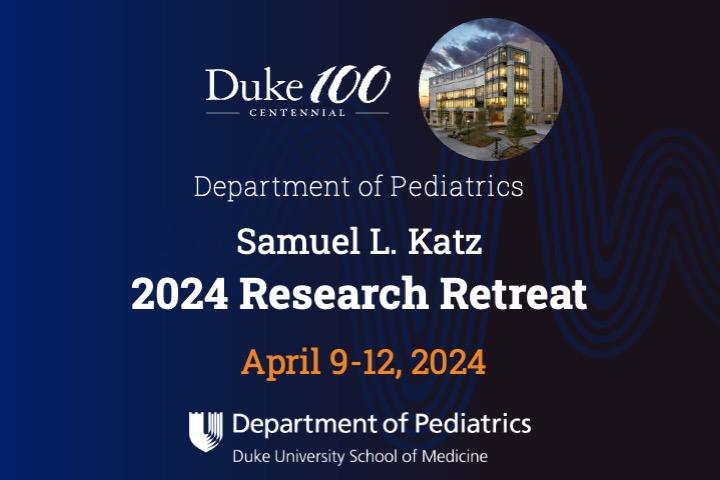
The 2024 retreat, in honor of Dr. Samuel L. Katz, took place from April 9-12. It centered on Genetic Insights Learned from Single Gene Disorders and their implications for common diseases and the future of genomic and precision medicine.
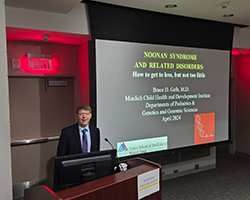
Kicking off on Tuesday, April 9th, the retreat commenced with a Grand Rounds (NetID required) hybrid session featuring a keynote address by Dr. Bruce Gelb from the Icahn School of Medicine at Mount Sinai. Dr. Gelb's presentation, titled Noonan Syndrome and Related Disorders: How to Get to Less but Not Too Little, set the tone for discussions. A subsequent fireside chat with Dr. Gelb delved into the pivotal role of genetics and precision medicine in treating rare gene disorders, sparking conversations about their implications for public health interventions.

Wednesday, April 10th, was devoted to Poster (NetID required) & Platform Presentations, spotlighting a wide range of Pediatric Research areas presented by individuals from across Duke and Duke-NUS. Special acknowledgment is due to our faculty reviewers—Drs. Pinar Gumus Balikcioglu, Matthew Kelly, Jillian Hurst, Neil Surana, Dorothy Dow, Charles Wood, Areeg Al-Gharbawy, Rachel Greenberg, Vicky Parente—and the QI panel led by Dr. Heather McLean for scoring our abstract submissions.
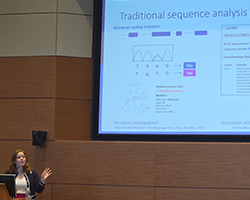
MD/PhD candidate Makenzie Beaman delivered a compelling Basic Science platform talk on advancements in sequencing technologies, emphasizing their critical role in identifying non-coding and regulatory genetic variants for diagnosing previously undetected genetic diseases and developing targeted therapies.
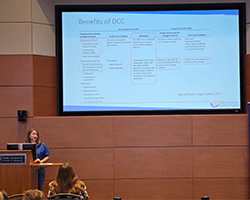
Dr. Laura Calvo's presentation, “Don’t Clamp the Cord,” shed light on her Quality Improvement project at Duke Birthing Center, aiming to standardize delayed umbilical cord clamping procedures and enhance utilization through evidence-based practices.
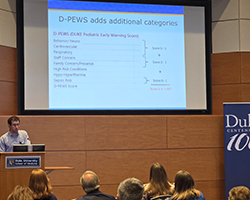
Dr. Henry Foote, a pediatric cardiology fellow, showcased his innovative clinical research with a talk titled “Development and Validation of a Machine Learning Model to Predict Clinical Deterioration in Children.” His findings emphasized the superiority of machine learning models in predicting clinical deterioration, offering increased lead time before adverse events occur, particularly benefiting younger and marginalized pediatric populations.
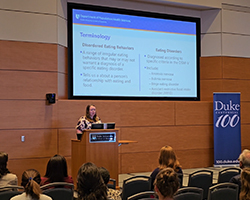
Dr. Laura Rolke, a Postdoctoral Fellow at Duke Center for Childhood Obesity Research (DCCOR) & Population Health Sciences, unveiled her impactful Public Health/Implementation Science research, revealing the significance of addressing disordered eating behaviors in pediatric patients initiating obesity treatment.
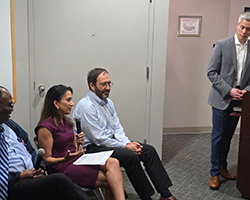
The retreat continued on Thursday, April 11, with a Special Research Rounds (NetID required) session involving a panel discussion on Single Gene Disorders. Panelist included Drs. Svati Shah, Rasheed Gbadegesin, and Dwight Koeberl. Their talks provided valuable insights into the current state of research and future directions.
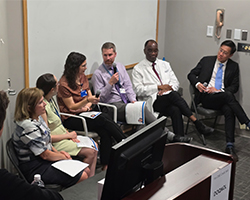
The retreat culminated on Friday, April 12th, with a Career Development Panel (NetID required) aimed at guiding trainees and junior faculty along the scientist and physician-scientist pathway. Panelists included Drs. Ann Reed, Rasheed Gbadegesin, Jennifer Cohen, Noelle Younge, Matthew Kelly, and Lee Jan Hau (Duke-NUS), providing guidance to the next generation of physician-scientists.
Overall, the retreat was a successful event that brought together researchers, clinicians, and students to discuss and learn about the latest developments in pediatric research. It was a testament to the dedication and hard work of all those involved in the field of pediatrics.